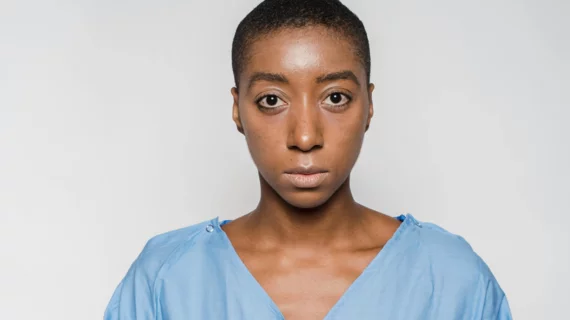Does Covid-19 raise risk for cancers—including rare ones?
Data is the strongest form of evidence, anecdotes the weakest. What’s often lost in that equation is that, without anecdotes to formulate hypotheses, researchers might never gather and analyze data in the first place. And now a growing set of anecdotes has some academics suspecting a link between Covid and “unusual” cancers.
Others are skeptical. They point to the long-held scientific consensus that as many as a fifth of all cancers around the world trace to viruses. Covid is nothing special in triggering or accelerating cancers, the doubters maintain.
But enough medical detectives have been noticing an uptick in odd cancers since 2021 that they’re doing three things about it—sharing notes, launching studies, and calling for stepped-up research funding from the National Institutes of Health.
The Washington Post looks at the gathering storm of suspicion in an article posted June 6.
“[M]ost governments don’t want to think about long Covid, much less long Covid and cancer,” University of Pennsylvania geneticist Douglas Wallace, PhD, tells the newspaper. “It cost them so much to deal with Covid, so there is very little funding for the long-term effects of the virus. I don’t think that’s a wise choice.”
He’s far from alone. Other voices expressing keen interest in new research, as quoted by WaPo national reporter Ariana Eunjung Cha:
- ‘I’ve been in practice 23 years and have never seen anything like this.’— Kashyap Patel, MD, chief executive of Carolina Blood and Cancer Care Associates, commenting on a curious rise in rare cancers seen at the practice since 2021
- ‘Covid wrecks the body, and that’s where cancers can start. … Autopsy studies of people who died of Covid-19 showed prematurely aged tissue.’—David Tuveson, MD, PhD, director of the Cancer Center at Cold Spring Harbor Laboratory in New York and a past president of the American Association for Cancer Research
- ‘Hopefully we’re wrong. But everything is, unfortunately, pushing toward that [Covid-cancer link] being the case.’—Afshin Beheshti, PhD, president of the COVID-19 International Research Team and a NASA bioinformatician
Patel alone has collected data from around 300 patients and wants to create a national registry to analyze trends, the article notes, adding that his practice has so far logged more than 15 patients with multiple cancers, more than 35 patients with rare cancers and more than 15 couples with new cancers since the pandemic began in 2020.
“It will probably be many years before the world has conclusive answers about whether the coronavirus is complicit in the surge of cancer cases,” WaPo reporter Cha points out. “But Patel and other concerned scientists are calling on the U.S. government to make this question a priority, knowing it could affect treatment and management of millions of cancer patients for decades to come.”
More from Wallace at the University of Pennsylvania:
‘We are completely under-investigating this virus. The effects of repeatedly getting this [coronavirus] throughout our lives is going to be much more significant than people are thinking.’

